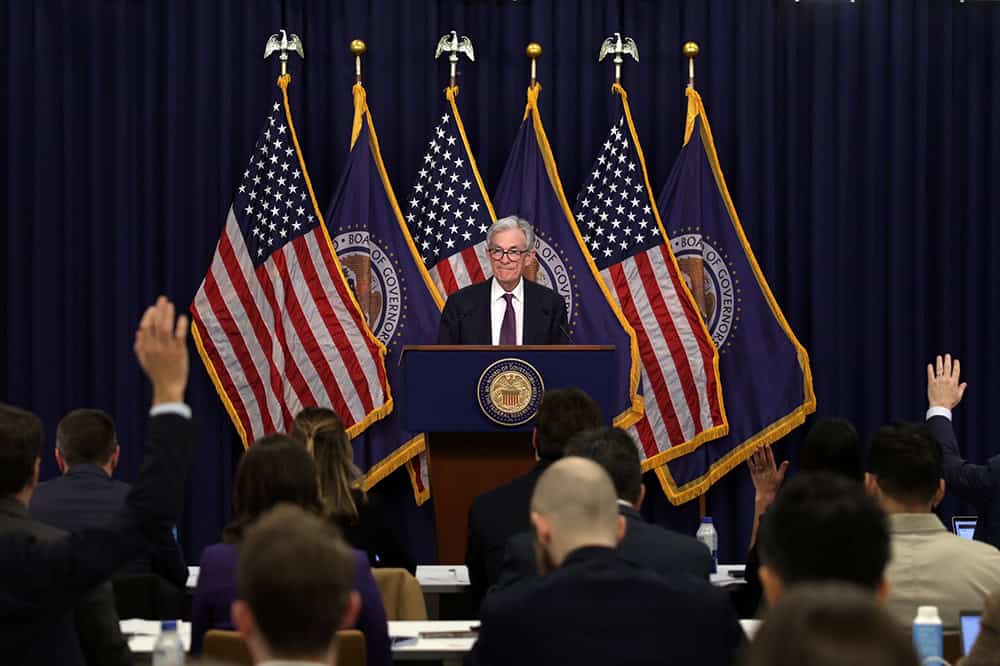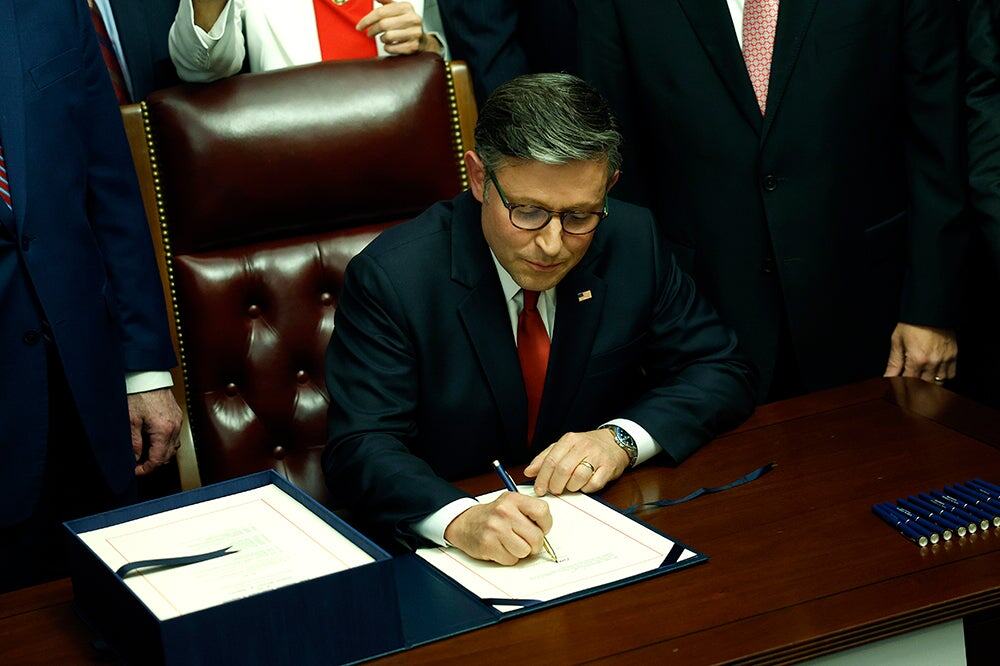Nation’s Leading Policy Voices Gather Today for Peterson Foundation’s 2018 Fiscal Summit: Debt Matters
Ninth-Annual Fiscal Summit Will Outline Urgent Need for Fiscal Reset following Recent Tax and Spending Legislation
Speakers to Include: Senator Jeff Flake, Minority Leader Nancy Pelosi, Senator David Perdue, Former Energy Secretary Ernest Moniz, Deanna Mulligan, Steven Rattner and more
WASHINGTON, D.C. (May 10, 2018) — Leading lawmakers and policy experts gather today for the Peter G. Peterson Foundation’s 2018 Fiscal Summit: Debt Matters. Following recent tax and spending legislation that add significantly to our national debt, the Fiscal Summit will examine the urgent need for a fiscal reset that puts America on a sustainable course for economic growth and prosperity.
As campaigns for the 2018 midterm elections get underway within a rapidly changing policy environment, the ninth-annual Fiscal Summit convenes voices from across the political and ideological spectrum to discuss how federal leaders can overcome political challenges to build a solid fiscal foundation that will support a vibrant economy for future generations of Americans.
“The theme of this year’s Fiscal Summit is ‘Debt Matters’ because it sure seems like we need some reminding,” said Michael A. Peterson, Chairman and CEO of the Peter G. Peterson Foundation. “Debt matters because our fiscal irresponsibility threatens the economic future of every American. Now, while the economy is strong, is the time to put our fiscal house in order. But we’re doing just the opposite. Today’s Summit will gather some of America’s brightest minds from across the ideological spectrum to discuss policy solutions that can put us on a more intelligent and sustainable path.”
2018 Summit participants include:
- Senator Jeff Flake (R-AZ), Member, Committee on the Judiciary; Member, Committee on Energy and Natural Resources; Member, Committee on Foreign Relations
- Senator David Perdue (R-GA), Member, Committee on the Budget; Member, Joint Select Committee on Budget & Appropriations Process Reform
- Representative Nancy Pelosi (D-CA), House Democratic Leader
- Representative Tom Reed (R-NY), Co-Chair, Problem Solvers Caucus; Member, Committee on Ways and Means
- Representative Derek Kilmer (D-WA), Member, Problem Solvers Caucus; Vice Ranking Member, Committee on Appropriations; Member, Joint Select Committee on Budget & Appropriations Process Reform; Vice Chair, New Democrat Coalition
- Ernest J. Moniz, Co-Chair and Chief Executive Officer, Nuclear Threat Initiative; Chief Executive Officer, Energy Futures Initiative; Former U.S. Secretary of Energy (2013-2017)
- Heather Boushey, Executive Director and Chief Economist, Washington Center for Equitable Growth
- Terry Dinan, Senior Advisor, Congressional Budget Office
- Robert Doar, Morgridge Fellow in Poverty Studies, American Enterprise Institute
- Simon Johnson, Ronald A. Kurtz (1954) Professor of Entrepreneurship, MIT Sloan School of Management
- Mark Hugo Lopez, Director of Global Migration and Demography, Pew Research Center
- Aparna Mathur, Resident Scholar in Economic Policy, American Enterprise Institute
- Adele Morris, Policy Director of Climate and Energy Economics Project, Brookings Institution
- Deanna Mulligan, President and Chief Executive Officer, The Guardian Life Insurance Company of America
- Steven Rattner, Chairman and Chief Executive Officer, Willet Advisors LLC
- David Wessel, Director, The Hutchins Center on Fiscal and Monetary Policy, Brookings Institution; Contributing Correspondent, The Wall Street Journal
2018 Summit moderators and interviewers include:
- Kimberly Adams, Senior Reporter, Marketplace
- Greg Ip, Chief Economics Commentator, The Wall Street Journal
- Jim Tankersley, Tax and Economics Reporter, The New York Times
- Erica Werner, Congressional Reporter, The Washington Post
The Summit agenda includes:
- A series of one-on-one interviews with Congressional leaders, including Senators Jeff Flake and David Perdue, and House Minority Leader Nancy Pelosi, discussing how and why national debt matters to America’s economic future;
- An in-depth conversation with Reps. Tom Reed and Derek Kilmer of the bipartisan Problem Solvers Caucus, discussing how common sense, fiscally responsible policy can be achieved in a polarized political environment;
- A conversation with former Energy Secretary Dr. Ernest Moniz on the connection between America’s fiscal outlook, energy security and role in the world;
- A panel featuring the perspectives of a business leader, an economist and a market expert on the danger that high and rising debt poses to our economy;
- A discussion on how a carbon tax could be part of the solution to our nation’s fiscal challenges; and
- A review of the multiple demographic, socioeconomic, and fiscal trends that will shape our nation in the decades ahead, and the implications for the social and financial well-being of all Americans.
Visit www.fiscalsummit.org for the event schedule and more information.
About the Peter G. Peterson Foundation
The Peter G. Peterson Foundation is a nonprofit, nonpartisan organization that is dedicated to increasing public awareness of the nature and urgency of key fiscal challenges threatening America’s future, and to accelerating action on them. To address these challenges successfully, we work to bring Americans together to find and implement sensible, long-term solutions that transcend age, party lines and ideological divides in order to achieve real results. To learn more, please visit www.pgpf.org.
Further Reading
Quiz: How Much Do You Know About Healthcare in the United States?
The United States has one of the largest and most complex healthcare systems in the world. Take our healthcare quiz to see how much you know about the cost and quality of the U.S. healthcare system.
The Fed Reduced the Short-Term Rate Again, but Interest Costs Remain High
High interest rates on U.S. Treasury securities increase the federal government’s borrowing costs.
How Did the One Big Beautiful Bill Act Change Tax Policy?
See how OBBBA restructured the tax landscape across four major areas: individual tax provisions, business tax provisions, energy tax credits, and health-related tax changes.


